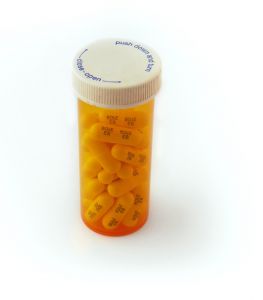Our testosterone replacement therapy attorneys understand that the Low -T craze sweeping the nation may have some serious health consequences in the near future.
 A recent article from Fox News examines whether testosterone replacement therapy (TRT) is appropriate for the many new patients taking the medication. According to the article, prospective patients are being told that depression, fatigue, reduced muscle mass, sexual dysfunction and loss of sex drive and increased belly fat are all symptoms of “Low T” or low testosterone levels.
A recent article from Fox News examines whether testosterone replacement therapy (TRT) is appropriate for the many new patients taking the medication. According to the article, prospective patients are being told that depression, fatigue, reduced muscle mass, sexual dysfunction and loss of sex drive and increased belly fat are all symptoms of “Low T” or low testosterone levels.
These are basically all of the signs or “symptoms” of male aging, so doctors and testosterone clinics (T Clinics) are presenting TRT as an age management therapy for a wide range of male patients.
Testosterone Replacement Therapy is now available in gels, skin patches, mouth patches, injections, and also can be given as an oral pill. However, as the article points out, the pills are known to cause liver complications and are no longer recommended. Still, they continue to be sol.d
In addition to the liver problems with oral dosing of TRT, new studies reveal men treated with testosterone have increased risk for heart attacks, cardiovascular disease and even death related to these conditions. There is also concern these TRT medications could increase the growth of prostate cancer cells.
It should be noted that doctors do not have any long-term data on the effects of testosterone replacement therapy. This is significant because as the average age of patients on TRT keep getting younger, and the long-term effects will only become more apparent with time.
There are few studies demonstrating the effectiveness of TRT for most patients. In terms of effectiveness and risks, there is somewhat of a dearth of available information. However, one figure of which drug companies are well aware is that TRT is predicted to balloon to a $5 billion industry in the next four years.
This a veritable gold mine, and the drug companies know it. Big firms have spent a lot of money working with advertising agencies to develop effective marketing campaigns for TRT drugs.
There are marketing departments that specialize in renaming existing health conditions to make them seem more cushy to patients. We have seen this for years. Everyone can remember the commercials for restless leg syndrome or RLS that used to constantly be shown on TV. That was a very old symptom of a condition originally called sewing machine foot because the patient looked as if they were moving the pedal on an old sewing machine up and down.
In the case of TRT, the marketing arm of drug companies came up with the term “Low T.” Low T, which is short for “low testosterone levels,” is not a medical term; it is a marketing term.
While this is all business for the drug companies, it is has real consequences for patients who are being told TRT can help them feel young again. These patients aren’t being warned of the many dangerous or deadly side effects, along with the fact that the benefits of the therapy are far from proven.
Call the Boston Jeffrey Glassman Injury Lawyers for a free and confidential appointment — (617) 777-7777.
Additional Resources:
Is testosterone replacement therapy right for you?, August 6, 2014, Fox News
More Blog Entries:
FDA Announces Testosterone Meds Must Carry Broader Warning, July 7, 2014, Boston Products Liability Lawyers Blog
 Product Liability Lawyer Blog
Product Liability Lawyer Blog

